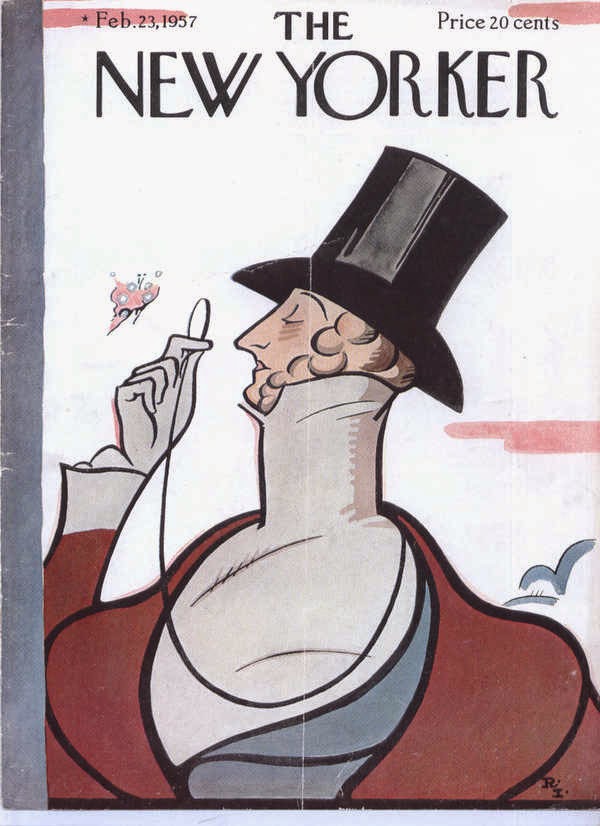When you opened the front door of the spacious yet unassuming house in Rockville, Maryland the first thing you saw was Prince Valiant. A choice Sunday page, all sweeping vistas and heraldic detail. The fact that the house contained almost 40,000 original cartoons, the largest private collection of comic art in America, if not the world was too much for the mind, so great was the discrepancy between the blandly comfortable house and what it contained
I said, "when YOU opened the front door," but that wouldn't happen. Steeped as he was in Southern Manners, it was unthinkable for someone else to open a door, any door, when Art was around. So there you'd stand, confronted with a man who looked like Hollywood's ideal of a Southern Senator living in this house with drawings. "Come out to the house," he'd say, to the amusement of Pat Oliphant who knew the house was really a shrine. "Come out to the house. We're having some of the troops out." The troops were inevitably Big Names of Cartooning and stacks of their Christmas cards could be found on the coffee table in season.
I met Art in the early 80s, courtesy of my high school friend Greg's mom. Doris Fronsdorff was a respected collector-and expert in children's books and she had a sharp eye, so when Art needed someone to authenticate some drawings by Kate Greenway, he called Doris. And Doris called me.
The Greenways were fakes, but it didn't matter. At least to me. I was at loose ends, unsure of what to do next. Or first. But Art Wood's enthralling tales and fabulous collection turned my head. The old-school Southern charm got me. And he knew everybody! My favorite Art Wood story from among millions is from later, after I'd quit Cul de Sac. I said my new work would look like Cy Twombly if he used his sleeve. I soon got a note from Art that said he and Cy Twombly were old schoolmates who'd gone on sketching expeditions together. There are two names I wouldn't put in the same sentence and they are "Art Wood" and "Cy Twombly."

Whenever he visited my studio, Art would sit on the floor like a little kid and go through piles of originals. To his utter delight I'd say, "Keep what you want." I figured he'd take better care of anything I gave him than I would. I mean, a guy with not just an animation cel hung on his wall but a cel with all seven dwarves signed, "To Art from Walt Disney" is at least trustworthy, monomaniac though he be, right?
Art sold his collection for just under a million dollars (though technically it was priceless) to the Library of Congress, where he'd worked as a boy (he'd also attended Hearst school, a public school in northwest DC, like my brother and even went to kindergarten in the same room). They had a nice ceremony in one of the fancier rooms attended by many cartoonists and Woodses and a show drawn from the collection. Art was expansive.
The last time I saw him was just before he moved to Charlottesville. He and his wife, the ever-gracious Sallie, had pretty much emptied the house, so now it was what it appeared to be, a normal suburban house. All the custom-built drawers Art had installed were empty. It was strange.
We had lunch at his club, where the waiters were vaguely insulting yet the food was good. It called to mind all the lunches we'd had; at one of them, memorably, I met Pat Oliphant for the first time. I remember because it was at the Press Club and Bill Mitchell was there and we went bar-hopping and my car got towed and I missed a date at the Phillip's.
Sallie & Art at my show with Roman Genn, Susan Conway Gallery, 1996
photo courtesy of Bruce Guthrie, whom I met at a Smithsonian event hosted by Art
But that was in 1987 (I could tell you the date because I asked Pat what he'd drawn - Nancy Reagan dropping a chandelier on Donald Regan). Art said he had something for me. I thought of one particular Krazy Kat I'd long admired. Heck, I'd told him I'd steal it.
He held out an old case. "I never could figure this out," he said. Inside was a complex optical device for transferring drawings. I never could figure it out either but it's handsome and mysterious.
J. Arthur Wood died on the fourth of November, in Charlottesville.










































